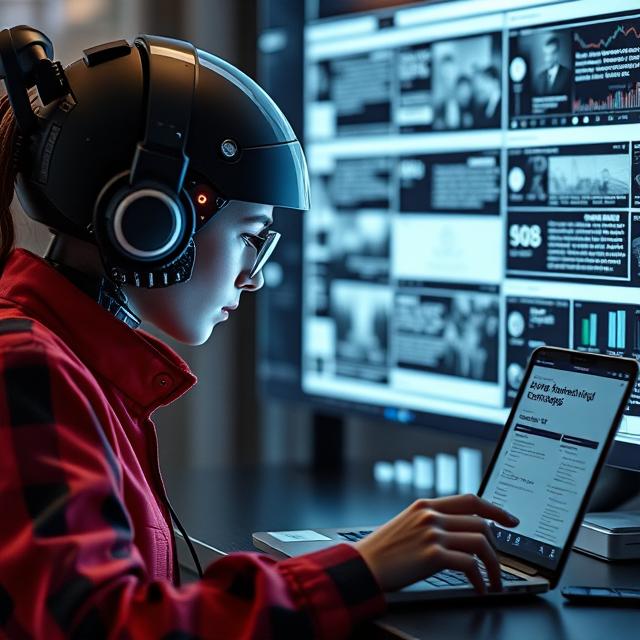Revolutionizing Content Creation Through AI
Artificial intelligence (AI) has rapidly transformed how we consume and produce information. One of the most groundbreaking developments is the rise of AI-generated social media content and journalism. These technologies are not only shifting the traditional newsroom to new ways of creating news but redefining how people and brands interact with audiences on the net. Automated news articles, artificial intelligence-infused intelligent social media scheduling tools; everything has a stage to play in digital communication.
AI in Journalism: Speed Meets Efficiency
Around the globe, news agencies are adopting AI tools to facilitate their operations. A few of the algorithms are capable of producing basic reports on weather and sports updates, as well as on what is happening in the finance sector. Journalists can then report on harder, more investigative stories. AI models are trained to gather data from different sources on subject matter and put it into readable formats whilst infusing it with human-like language. Most importantly, this is supposed to enhance both the speed and scalability of journalism.
While some believe the AI development is a threat to human journalists, most experts agree that it will be a very powerful assistant. Such a hybrid future will mean routine reporting by machines and critical thinking and storytelling by humans. This should ensure accurate content is delivered in an engaging manner, while the most from what a newsroom has can be maximized.
Social Media’s AI Transformation
AI-generated social media content is already a game-changer for influencers, marketers, and organizations. AI systems can compose snappy captions, appropriate hashtags, and optimized timings for posts. They analyze the behavioral patterns of users along with what’s hot and previous performances to devise a post that can best resonate with the audience. Thus, big businesses with several accounts for social media save labor and keep it efficient in branding.
The rise of AI-generated social media posts also enhances audience targeting. AI systems could partition the followers into parts based on interests, demographics, and engagement patterns. This would allow the creators to scale up the personalized content, improving interaction and loyalty. Also worthwhile, AI can shorten long original content into bite-sized posts and maximize the use of the source material.
Ethical Concerns and Content Authenticity
As with any technological advancement, using AI in journalism and social media has raised ethical concerns. One concern is misinformation, and the second is an absence of transparency and authenticity. AI-generated social media posts could be made to appear very human and hence would create problems in distinguishing real from fake content.
Transparency in informing the audience that AI has been utilized in the creation of content is essential for content creators and companies to maintain trust. This is an ethical standard in itself as it relates to AI-assisted communication. Regulatory bodies can also take action to ensure that AI-generated journalism adheres to journalistic ethics while avoiding manipulation.

The Future of AI-Generated Journalism and Social Media Content
AI’s Role in Enhancing Creativity
Apart from fears of AI stifling creativity, it appears that it is actually used to enhance creativity. Many creators use these AI tools for brainstorming and for drafting messages as a first version. AI-generated social media content can be catchy headlines, creative visuals, and even memes, helping these marketers and journalists to focus more on strategic thinking and creative direction.
With such variations in tone, formats, or the technique of storytelling, AI could actually help experiment. It will also deduce from past performance to offer insight on what works best with different audiences. Smarter content decisions yield greater impact regarding the messaging.
What Lies Ahead
AI is still emerging in journalism and social media. Upcoming years will lead to still better instruments, which will decode and ultimately interpret emotions and cultural contexts, happening events at virtually real-time lengths. AI-generated social media posts may soon include sounds or videos, linking them better with mimicked human influencers for a more holistic or immersive experience.
As AI advances to perfection, it is becoming increasingly hard to separate human and machine-generated content. However, a successful strategy will always include some human involvement; indeed, AI will serve as a tool, not a replacement.
AI-generated social media posts and AI-generated social media content are changing how we create, share, and engage with digital content.
How Smart Fabric and Tech Pack Software Are Changing Fashion
How Mixed Reality Minecraft Shapes Remote Work in Washington



